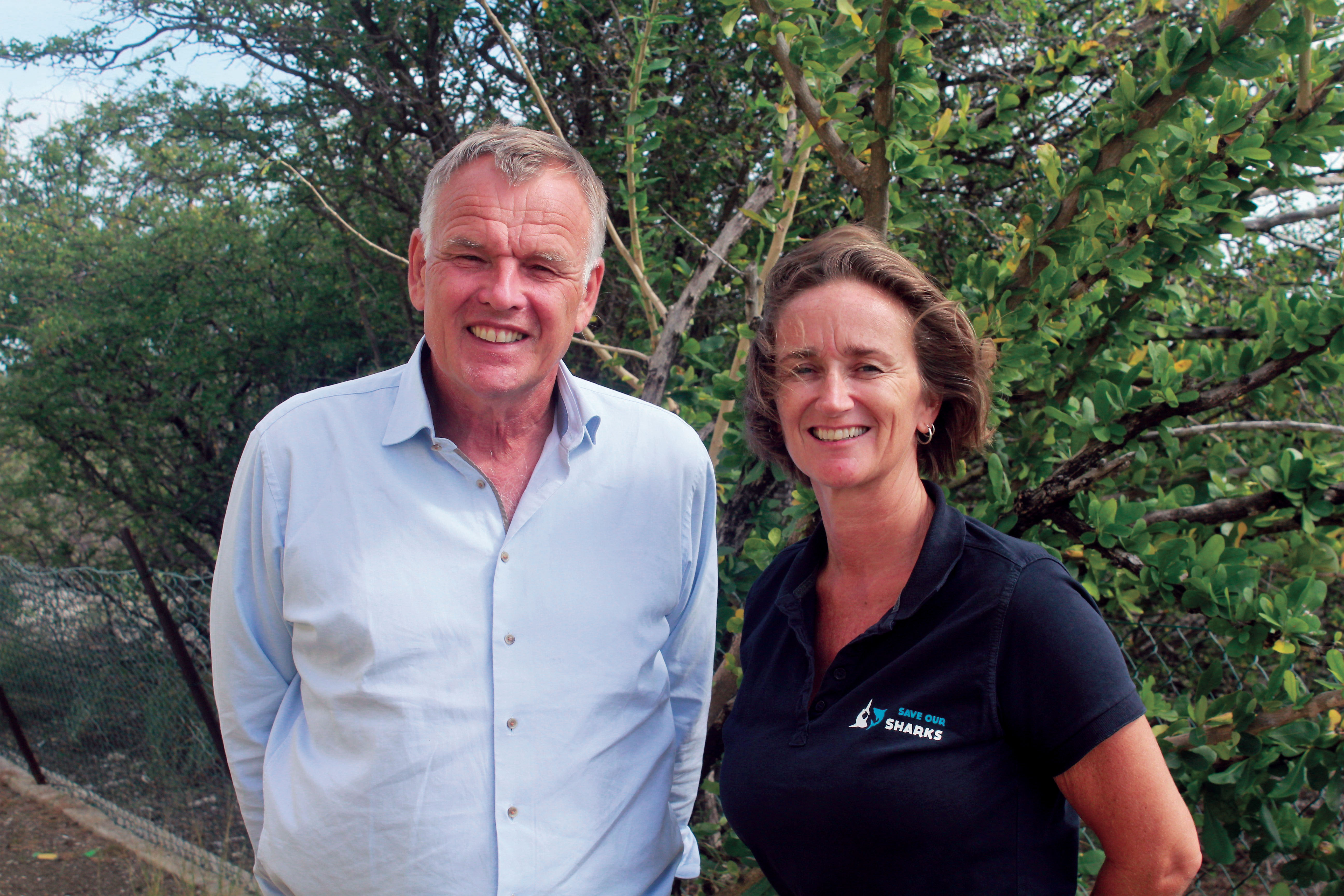
Island Culture
Sieben’s office now overlooks the Caribbean Sea. While the natural surroundings are very different from what he was used to in the Netherlands, Sieben often refers to the similarities between the Caribbean islands and the Dutch islands in the Waddenzee, which he is very familiar with. Sieben recognizes a certain “island culture”, the various impacts of tourism, and is familiar with the differing roles people have in a small scale society.
Passion for Nature
STINAPA (Stichting Natuur Parken/ National Parks Foundation) is dedicated to the protection and management of the nature on Bonaire, both within and outside the two national parks of the island (Washington Slagbaai National Park and Bonaire National Marine Park). The goals of STINAPA lie close to the heart of the 62 year old Director. Even though some former convictions had to make space for practical necessities (like driving a car and taking a plane), a glimpse of the young vegetarian, nature-activist can be clearly recognized in the enthusiast Director. Part of the job Sieben greatly enjoys is guiding a monthly birdwatching tour for both residents and tourists and he has become an enthusiastic scuba diver. The passionate bird watcher emphasizes how much diversity Bonaire’s nature has to offer.
Creating Awareness
An essential task for STINAPA is to create awareness among the island’s population and its visitors. The non-governmental organization informs people about the importance of nature, and the consequences of specific human activities. Since these consequences are not always directly or locally visible, it is crucial to make people understand why certain practices or developments are discouraged or forbidden. Sometimes this understanding is a clear eye-opener for the public, making them change polluting habits, but it can also bring about certain tensions or resistance.
“If everyone just follows his personal interest only, we won’t get there”
The Economy of Nature
When nature protection conflicts with local traditions and habits, it is complex and challenging for the nature organization to follow protocols as intended. Also, the fact that nature provides an important source of income for many residents of the island makes nature protection on Bonaire not always self-evident. As STINAPA’s Communications Coordinator, Anouschka van de Ven, explains. How to explain a fisherman, who can’t afford to buy dinner in the supermarket, he is not allowed to take a grouper or conch out of the waters he is so familiar with.” STINAPA will keep spreading their message of nature protection to make sure future generations can also enjoy Bonaire’s flora and fauna. Sieben continues to explain that nature protection and human welfare are deeply interconnected. As long as people live in poverty, they will exploit nature as revenue. On the other hand, the protection of Bonaire’s nature can lead to jobs and the island’s welfare, now and in the long run, as it offers a unique tourist experience that attracts people from all over the world. “The people who visit Bonaire mostly enjoy the calmness, the authenticity, and the nature, so protecting nature is protecting the economy of the island.”
Educating Youth
An important way to develop a sense of respect and caring for the natural environment is through education of the youth. Children are introduced to the functioning and importance of nature because the local school system offers a unique nature and environmental education program in every primary school on Bonaire. This program, run by STINAPA’s Nature Educator, includes both classroom activities as well as field experience. STINAPA also offers a variety of after school programs such as the Junior Ranger program, which has been exported to various other countries due to its great success. Communications Coordinator Van de Ven explains that not only the attitude of the children themselves towards nature changes, but it can influence whole families. “When a child tells her parents not to throw a plastic bag in the water because a turtle might eat it and die, the message is much more influential than if we would tell them.”
Working for Nature
Since it’s easier to accept information from an insider, STINAPA is very pleased to have many local employees. In total, 26 people work for the organization, of which 80 percent are from Bonaire. Sieben emphasizes that to work for STINAPA, it is important to have the right attitude towards nature protection, but also to know the local culture and language. The director understands that Papiamentu is an important language here and doesn’t mind attending meetings where the local language is spoken. Sieben encountered this challenge before when working in the Frisian part of the Netherlands and enjoys the multilingualism and multiculturalism as part of his job.
Communication and Cooperation
There are plans to expand public communications for the nature protection organization in the future. These involve a visitor center in downtown Kralendijk to educate and connect people even more with Bonaire’s nature and a Ranger on Klein Bonaire to inform and accompany visitors to this unique part of the Marine Park. Besides informing residents and tourists, it is important for the NGO to maintain close ties with the government. STINAPA works closely together with both the local and national governments in order to cooperate and disseminate their message. There is also an important role for entrepreneurs on the island to pay attention to nature and environment. “If everyone just follows his personal interest only, we won’t get there,” Sieben explains, “we have to work together on this island.”

